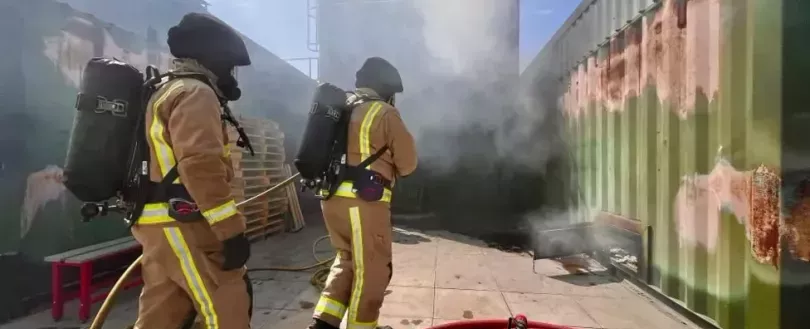
Council Calls for Government Support Over Battery Farm Fire Risks
Like it? Share it!
23 July 2025
Norfolk County Council has voted to press Energy Secretary Ed Miliband to provide funding for training and equipment for fire and rescue services in areas where large-scale battery energy storage systems (BESS) are proposed.
The move follows concerns that local fire services may not be fully equipped to handle potential incidents involving BESS sites, several of which are planned for Norfolk. Council Leader Kay Mason Billig (Conservative) expressed fears about the risks posed by these developments, urging that fire services be consulted as part of the planning process.
"I fear they pose a serious risk," said Mason Billig, highlighting the need for emergency services to be involved in discussions around battery farm proposals.
BESS facilities store surplus energy from sources like wind, solar and fossil fuels, releasing it when demand peaks. The energy is stored in lithium-ion batteries, typically housed in structures resembling shipping containers. These systems are seen as critical to the UK government’s strategy for boosting green energy and enhancing energy security, with plans to scale storage capacity from 4.5 GW in 2024 to 27 GW by 2030.
While incidents involving BESS are uncommon, the Suffolk Fire and Rescue Service has referred to them as "an emerging risk." At present, there is no single authority responsible for setting safety standards, although the Health and Safety Executive (HSE) oversees general regulation.
Recent applications for BESS developments have increased, though some proposals, such as a major site at Rushall, near Diss, have recently been paused by developers.
Mason Billig voiced concerns at a full council meeting that current planning legislation does not require fire services to be consulted on BESS applications. She called on the government to ensure fire and rescue teams have the tools and training needed to respond effectively to such incidents.
"They present a real challenge to our fire and rescue services who are expected to respond to these highly complex incidents with no additional funding, training or equipment from the government or developers," she said. She also urged ministers to establish national safety standards for BESS sites.
Cllr Catherine Rowett, leader of the Green group on the council, supported the call for increased funding and stricter guidance, but cautioned against alarmism.
"We should resist the temptation to overstate the risks from BESS installations because local residents are receiving sensationalist misinformation that are causing many to fear for their lives," said Rowett, adding that older technologies were to blame for previous fires, such as one in Liverpool in 2020.
View the source.
Our eNews provides regular insight into industry trends, news headlines, and product and service information. For more articles like this Subscribe to our enews.
Related news
-
Record Rise in E-Bike and E-Scooter Fires Across London
28 January 2026
Related resources
-
Passenger Service Vehicle - Guidance Note
05 September 2023
